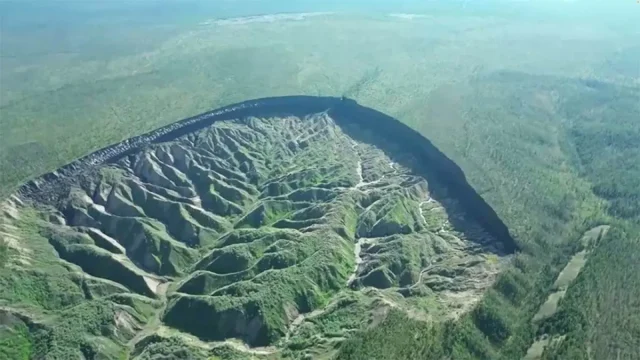A breathtaking aerial video has showcased the Batagaika crater, a massive permafrost crater stretching one kilometer in Russia’s Far East. This colossal depression emerged after deforestation in the 1960s triggered the melting of the underground permafrost, causing the land to sink and form uneven terrain with small hummocks.
Dubbed as “the cave-in” by locals, this site has become a concern due to Russia’s rapid warming, occurring 2.5 times faster than the global average. As a result, about 65% of the country’s landmass covered in frozen tundra is thawing, releasing greenhouse gases from the defrosted soil.
Known scientifically as a mega-slump, this place attracts tourists but also serves as a warning sign. Researchers fear that as temperatures rise and human activities increase, more mega-slumps will form, eventually leading to the disappearance of all permafrost.
The consequences of thawing permafrost have already affected communities in northern and northeastern Russia, causing damage to infrastructure such as roads, houses, and pipelines. The situation is aggravated by intense wildfires in recent times.
Residents of Russia’s Sakha Republic have noticed the Batagaika crater’s alarming growth, with its edge getting much closer to certain areas within just two years.
Although the exact rate of the crater’s expansion remains uncertain, scientists are concerned about the vast amount of organic carbon present beneath the slump. As the permafrost continues to thaw, this carbon will be released into the atmosphere, exacerbating global warming.





















